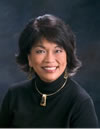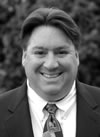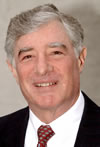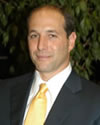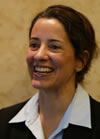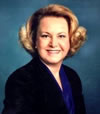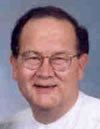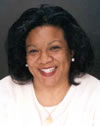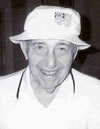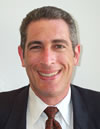

12 vie for Board of Governors seatsTwelve candidates are running for five open seats on the State Bar Board of Governors this year in a race that includes a deputy public defender, a prosecutor, a co-publisher of a legal affairs newspaper, a law school career services director and a 94-year-old solo practitioner. And there are a few familiar faces among them. Five of this year’s contenders declared their candidacy for seats on the board just last year. One returning candidate — Los Angeles County deputy public defender Marguerite Downing — withdrew early from last year’s election after the well-known Breakfast Club of Los Angeles endorsed attorney Sheldon Sloan, a former Los Angeles municipal court judge. Downing, too, threw her support to Sloan, who won the race. This year, Downing, 45, and three other attorneys are vying for one of two available Los Angeles seats. Her opponents include solo practitioners Phillip Feldman, 72, and Joseph Lewis, 94, and Los Angeles County deputy district attorney Frank M. Tavelman, 38. The candidates for the other Los Angeles seat include Jo-Ann Grace, 57, co-publisher of the Metropolitan News-Enterprise, and Northridge attorney James A. Otto, 49. Glendale attorney Matthew D.M. Rifat recently withdrew from the race. While no women appeared on last year’s ballot, four women are in the running for four of the available seats this time around. In the Bay Area, two San Francisco attorneys — Jeffrey L. Bleich, 42, and Dena Marie Cruz, 46 — are vying for an opportunity to represent San Francisco and Marin counties on the bar’s board. Attorneys James A. Scharf, 43, of San Jose and Mike K. Schmier, 59, of Emeryville are seeking to represent attorneys in Alameda, Contra Costa, Santa Clara and San Mateo counties. Sacramento attorneys Ruthe Catolico Ashley, 56, and Paul A. Kramer Jr., 47, are running for a seat in the district that includes Sacramento and several surrounding counties. The candidates’ appeals to voters vary. One pledges to lobby for adequate funding for the money-strapped judiciary without increasing user fees and to expand the bar’s law-related education programs. Another stresses the importance of working together to improve the rules governing the practice of law. Another wants the State Bar to become more “user friendly.” And others want to see more efficient State Bar spending, better bar services through the use of modern technology, less costly MCLE programs and a greater State Bar focus on serving solo and small firm practitioners. Eligible voters should receive their mailed ballots this month and will have until June 30 to cast their vote. The votes will be tallied in mid-July, and the five new board members will take office at the State Bar’s annual meeting in October. Following are edited excerpts from the 2004 candidate statements:
DISTRICT 2RUTHE CATOLICO ASHLEY, Sacramento
Would bring a wealth of experience and commitment to the legal profession as a member of the board of governors. She is the director of career services at the University of the Pacific, McGeorge School of Law in Sacramento. She was a founding partner at the first Asian-American women-owned law firm in the greater Sacramento area specializing in healthcare law, civil rights, employment and business litigation. Ashley has a strong commitment to the community and is involved in numerous community, professional and political activities. She received a Lifetime Achievement Award from Pace University Law School in February for her “dedication to the betterment of Asian American law students and the public at large.” Ashley is committed to representing the lawyers of District 2 in matters that are important to this constituency. She believes the State Bar is the collective voice of California’s lawyers and must be involved in making the practice of law more productive and efficient for its members. It must also partner with federal and state government in ensuring that justice is available to every citizen. PAUL A. KRAMER JR, Sacramento
Senior staff counsel with the California Energy Commission in Sacramento; former staff counsel with the State Department of Rehabilitation, assistant county counsel for Yolo County and deputy county counsel for San Bernardino County. Member, board of governors Task Force on Sections, 2002-04; Council of State Bar Sections representative and co-chair (2002-03); chair of the council’s Long Range Strategy Subcommittee, 2001 – present; Public Law Section Executive Committee member, secretary-treasurer, chair and advisor from 1992 to 2001. The State Bar, like most bureaucracies, requires energetic oversight to move things along. My efforts on behalf of the sections demonstrate my ability to devote the time and energy necessary to serve as an effective member of its governing board. I am familiar with, but hopefully not co-opted by, the bar’s culture. My goal is not to create new programs which further stress limited financial resources but instead to: (1) make current programs more effective; (2) increase the focus on serving small firm and solo practitioners; (3) improve communications between the bar and its members; (4) increase the bar’s use of technology to improve program performance and lower costs; and (5) improve the fiscal health of the sections.
DISTRICT 3JAMES A. SCHARF, San Jose
Despite the passage of Proposition 57, our state courts will continue to face significant budget reductions. These cuts will affect court services and may impair access to justice. As a member of the Santa Clara County Bar Association Judiciary Budget Task Force, I am working to obtain an appropriate judiciary budget. A father of three boys, I am also committed to providing law-related education opportunities to the youth of our community. I have served as a high school mock trial coach, mock trial tournament administrator and have organized several Law Day youth forums. As our district representative, I pledge to lobby for adequate funding for the judiciary without increasing user fees, and to support and expand State Bar law-related education programs. Leadership experience with the Santa Clara County Bar Association includes: current secretary; former treasurer; eight years on the board of trustees; five years on the executive committee; and former chair or co-chair of the civil practice, judiciary and law-related education committees. I am house counsel for the California State Automobile Association and an adjunct professor at Lincoln Law School of San Jose. MIKE SCHMIER, Emeryville
Professor of law, East Bay Law School; private labor and employment law practice; former member, Emery Unified School District Board of Trustees; former administrative law judge, Agricultural Labor Board; former deputy district attorney. Focus: End prohibition against citing unpublished decisions. I am working in Washington for proposed F.R.A.P. 32.1 — and in Sacramento with Sen. Sheila Kuehl for S.B. 1655 —to return our right to cite unpublished appellate decisions. Citation has central importance to the integrity of our legal system. Court rules that forbid citation have a major impact on bar members, clients and the public. Restoring our historic right to cite unpublished appeal court decisions, now forbidden to us, will do more than return our use of precedent to avoid or invoke civil or criminal liability. The essential integrity of our justice system and our form of government are at stake. When judges can render decisions without account- ability, our essential equal protection warranty is destroyed, and randomness and unpredictability reign. I want our State Bar to support current efforts to remove court rules that do not allow us to cite. Citation is at the center of democracy’s nerve system. It enables us to identify legal issues in need of resolution. Not allowing citation is a fundamental defect, which undermines our system of government. Our bar should take the lead to fix it.
DISTRICT 4JEFFREY L. BLEICH, San Francisco
California has the largest number of practicing lawyers of any state. Our challenge is to remain the best, despite our great size. As a practicing attorney, a past president of the Bar Association of San Francisco, and someone who teaches law at Boalt Hall, I believe the only way to accomplish this is to focus on the values that have made the California legal profession special. First, we must maintain high expectations. Lawyers hold people’s fates in their hands, and so we must set high admissions standards for new lawyers and deal directly with attorneys who violate the rules. Second, we must ensure that the law is not simply fair to our clients, but that it is fair to all. This means devoting our resources to providing every Californian, regardless of wealth or background, with access to justice. Third, we need to work together to improve the rules that govern our practice. Our bar leaders must work together with the legislature, the governor and the courts to clarify ambiguous rules, correct unjust laws and promote respect for the law. Finally, we need to help train the next generation of lawyers to be even more diverse and better skilled so they can meet the expanding legal needs of California citizens. Teddy Roosevelt said that “Every person owes some of his time to the upbuilding of the profession to which he belongs.” Partner, Munger, Tolles & Olson LLP, San Francisco; director, White House Commission on Youth Violence, 1999-2000; UC Berkeley, 1993-present (adjunct lecturer in law). DENA MARIE CRUZ, San Francisco
Employment: First American Title Insurance Co. 1999-present; Fidelity National Title Insurance Co. (and affiliated companies), 1988-1999; Kirk, Simas & Normanly, 1985-1987. State Bar activities: current member, State Bar Board of Governors Task Force on Sections; current co-chair of the Council of State Bar Sections; current advisor, Executive Committee of the Real Property Section of the State Bar of California; current member, UCC Subsection of the Executive Committee of the Business Law Section of the State Bar of California; member, International Law Section of the State Bar of California. Professional affiliations: member, American Bar Association; member, CREW San Francisco; member, American College of Mortgage Attorneys. Other activities: volunteer and financial supporter, Hospital de Familia. Publications: author of numerous articles and lectures frequently on real property, title insurance and Commercial Code Article 9 issues.
DISTRICT 7 – Office 1JO-ANN WHITNEY GRACE
Would bring to the board of governors experience garnered in law and business. She began law practice in 1970 as a government lawyer for the IRS, then moved on to practice as a corporate transactional attorney. Jo-Ann’s involvement with the legal community led her, along with her husband, to assume ownership of the Metropolitan News-Enterprise in Los Angeles and to later start such a newspaper in San Bernardino. Her involvement in bar activities has been extensive and includes the Italian American Lawyers Association (president 1996), the Los Angeles County Bar Association, California Women Lawyers (life member), Women Lawyers Association of Los Angeles, Southern California Chinese Lawyers Association, and the Cowboy Lawyers. Treasurer of the Foundation of the State Bar of California, a director of the Los Angeles County Bar Foundation, LACBA delegate to the Conference of Delegates of California Bar Associations, and past member of the Com-mission on Judicial Nominees Evaluation (JNE). Jo-Ann served as chair of the Lawyers Conference of the American Bar Association’s Judicial Administration Division and chair of The Breakfast Club. From 1971-80, Jo-Ann served as an attorney with Internal Revenue Service. Her experience in tax law provided her with knowledge which has enabled her to provide advice to bar groups in connection with non-profit endeavors. JAMES A. OTTO, Northridge
I will make your interests the interest of the State Bar. I best represent the majority of practitioners in District 7 because I am a practicing attorney, a businessman and a community volunteer. I know what it is like to provide clients with the best legal services possible and to pay the bills at the end of the month. We need to make a fundamental change in the way the State Bar interacts with its members. Most of us feel that bar dues are too high and provide no service. Performing an efficiency audit will identify how to make the State Bar more accountable for how it spends your money. Better service does not have to cost more. You can have free services without increasing bar dues by utilizing modern technology coupled with good business sense. For example, the State Bar can provide free daily appellate cases, provide a history on judges and arbitrators, establish a free job search service, provide statutory forms, serve notice of statutory changes and offer a roster of attorneys by practice area. MCLE requirements are expensive and time-consuming. I propose to use the purchasing power of the total membership to contract with the MCLE providers for discounted prices. The bar must also build partnerships with communities to help educate the general public on how to access legal services. This is particularly important in District 7 where the growing diversity of ethnic and immigrant communities require assistance with a myriad of legal issues.
DISTRICT 7 – Office 2MARGUERITE D. WHICHARD DOWNING, Los Angeles
I am running on a platform committed to making the State Bar more user friendly. Instead of all the focus given to discipline, I believe more effort should be focused on professional development, while striving to keep down dues and other costs associated with the practice of law, particularly for new lawyers, solo practitioners, government attorneys and senior lawyers. I have been president of numerous local bar associations including Black Women Lawyers and the California Association of Black Lawyers. Currently, I am president-elect of California Women Lawyers. Through my involvement in the Conference of Delegates, in the Criminal Law Section Executive Committee and as co-chair of the Ethnic Minority Relations Committee, I have become very familiar with State Bar and local bar governance. As a member of the Board of Governors, I will be a strong advocate for fairness, access to legal services, and promoting diversity and progress within our legal system. Additionally, I will work to bring more awareness to the existing State Bar structure and committees in order to increase participation, using my wide array of contacts and affiliations to provide important outreach and networking opportunity with local bar associations. I believe that my extensive history of bar service makes me eminently qualified to serve. PHILLIP FELDMAN, Sherman Oaks
Experience, “know how” and “know who” make Phillip Feldman your most experienced and capable representative. 36-year member of Los Angeles County, Beverly Hills and San Fernando Valley bar associations; co-founder, Lawyers Professional Liability Bar Association; former chair, SFVB Professional Responsibility & Ethics; board member, American Board of Professional Liability Attorneys. Isn’t it time for dynamic leadership to show the public we attorneys need to be appreciated because we protect and serve them? Don’t we need them to share the good feelings they used to have about us as their legal problem solvers? We are proud professionals in the business of law. We must be represented by the most experienced candidate whose integrity, honesty and sincerity has long convinced the public that our services are both needed and wanted. Feldman has 36 years as a transactional and trial lawyer. He now consults with law firms as a “lawyer’s lawyer” and is the only lawyer to be certified as a specialist in both legal and medical malpractice in the state. JOSEPH LEWIS, Los Angeles
My legal experience as a sole practitioner, being a long-standing partner in the law firm with my last partner Frank J. Waters and having a daughter as an assistant city attorney have contributed to my understanding of issues concerning the California State Bar membership. Two appellate Los Angeles Superior Court decisions and I established the law that a lawyer who lost his hearing, but was still able to do other legal work, was deemed totally disabled under insurance policies written by New York Life Insurance Co. and Metropolitan Life Insurance Co. The U.S. District Court and I helped establish the law that African American passengers traveling on Southern Pacific Railway shall not in El Paso, Texas, be transferred into one car to travel through the southern states. Extremely dedicated to giving as much time to this position as is necessary and making my role in the State Bar Board of Governors my number one priority. FRANK M. TAVELMAN, Los Angeles
As a Los Angeles County deputy district attorney and former corporate counsel for The Capital Group Companies, I have experience in both trial and transactional practice. Los Angeles attorneys need a representative on the board of governors who understands both of these areas to effectively represent our diverse profession. Attorneys are officers of the court and should not be subjected to metal detector screening. Such indignities do not significantly increase court security, reallocate resources from higher risk groups (litigants) to lower risk groups (lawyers), and waste lawyers’ time. Less intrusive means for security exist, and as a member of the board of governors I will encourage the courts to utilize them. The best way to make a bar responsive to its members is to vote for representatives who are not part of the status quo. You deserve a representative who believes that the core function of the State Bar should be the licensing of law-yers and imposition of appropriate discipline. The State Bar [should] not be in the real estate business, owning expensive properties and acting as a landlord. In the imposition of discipline, I believe there is a difference between misconduct resulting from innocent oversight, and misconduct resulting from intentional misconduct. State Bar action should appropriately reflect this difference. California has some of the highest bar dues in the nation. I will review the bar’s budget and seek to cut excessive spending. • To see the candidates’ complete statements, visit the bar’s Web site at www.calbar.ca.gov. |
||||||||||||||||||||||||
|
||||||||||||||||||||||||
